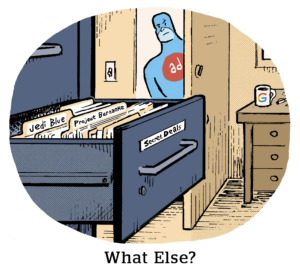Google’s decision to cancel cookie deprecation may just be the move that eliminates third-party cookies for good.
Exact details are still unclear, but Google said it will offer Chrome users the chance to “make an informed choice that applies across their web browsing.” The fate of cookies is now in the hands of the consumer.
One thing that is clear: When consumers are presented with a choice, they will overwhelmingly opt for privacy.
Anyone who views Google’s decision as a signal to maintain the status quo is mistaken. Third-party cookies are bad for consumer privacy – always have been, always will be – and continued reliance on them is unsustainable.
The only way forward for the industry is to put consumer choice first. That means putting the cookie behind us and rebuilding our relationship with consumers.
Consumers demand data protection
There’s an obvious precedent for cookie deprecation in Apple’s post-AppTrackingTransparency (ATT) opt-in rates. According to Adjust, 76% of consumers choose to opt out of tracking on iOS. In some markets, such as Germany, 80% opt out. The country with the highest rate of consent is the UAE, where the opt-in rate still doesn’t even reach 50%.
Consumers are more aware of their privacy rights than they have ever been; Cisco research shows they are exercising their data subject access rights in ever-greater numbers. Younger generations are showing higher levels of concern about privacy than older consumers, and they will turn their backs on organizations that don’t respect their data.
Additionally, the way the industry collects consumer data has never been under greater scrutiny from lawmakers. In the US, 19 states have enacted data privacy laws, and federal-level legislation is arguably closer than it has ever been.
Legal precedents are also being set, with Oracle recently having to pay a $115 million settlement after being found to have collected personal information before selling it to third parties.
The message is clear: Respect data privacy or face the wrath of consumers and legislators.
Putting consumers at the center
The repeated postponement and ultimate cancellation of cookie deprecation has been frustrating for the digital advertising industry. But it has been the catalyst for many organizations to investigate alternatives to third-party cookies and devise strategies for a cookieless future.
If the industry intends for consumer choice to guide the next era of digital advertising, then targeting and measurement strategies built around first-party customer data are the best alternative to cookies. We should only use what customers are willing to share with us.
Besides, data that consumers opt into sharing is more trustworthy than cookie-based signals. Consented first-party data in tandem with secure collaboration technology has created a new horizon for data-driven marketing that revolves around fast, accurate and transparent insights.
A strong first-party data strategy, alongside investment in technologies that prioritize consumer privacy and safeguard data security, can be effective regardless of whether third-party cookies exist or not. And it’s the smartest approach for conforming to strict data protection laws and – most importantly – putting the customer at the center of everything.
Ironically, letting consumers kill the cookie might be one of the best ways for the industry to win back their trust.
The cookie’s days are numbered
The days of indiscriminately sharing data across the ecosystem are behind us. Even if third-party cookies don’t entirely disappear, their already limited value will be further diminished when consumers are given the choice to opt out of tracking in Chrome. Remember, the cookie is all but dead outside of Google’s kitchen.
Any marketers or publishers that were breathing a sigh of relief when they heard news of the cookie’s reprieve have missed the point. Now is not the time to cancel or even postpone plans to deal with signal loss. Forward-thinking organizations will not be changing course.
Google won’t end cookies, nor will the ad tech industry. It will be consumers themselves. And that’s exactly as it should be.
“Data-Driven Thinking” is written by members of the media community and contains fresh ideas on the digital revolution in media.
Follow InfoSum and AdExchanger on LinkedIn.
















